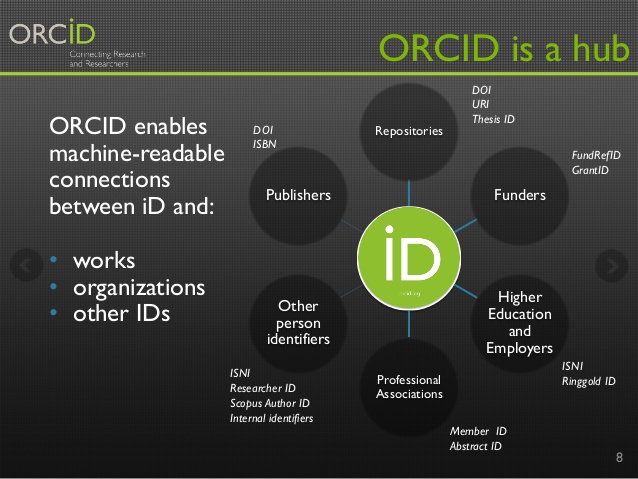Why we care and the cost of research

Libraries care about “discovery” and usage statistics to justify the high costs of scholarly resources. Researchers need to find sources that are available and use and attribute them ethically. Faculty researchers want to do their research, but need to get grants, publish research and be cited. In this age where “Google rules,” student researchers want access to everything now. Government agencies and funders want to track return on investment for public funding of research. Businesses and citizens benefit from products of scholarly research. We all benefit from life saving drugs and procedures of medical research. We should all care about research. All of these entities are intertwined in our increasingly complex scholarly ecosystem.
The players
In this age of digital scholarship, the scholarly ecosystem involves players, systems and tools that need to be interoperable and machine-readable. Finding and accessing and reporting on research involves:
- National registries; examples are ISNI and Ringgold
- Funding agencies and private foundations; examples of private foundations are Mellon Foundation and Wellcome Trust
- Public and private institutions
- Publishers
- Aggregaters/platforms/hosts; examples are Web of Science, Scopus, Mendeley, and ResearchGate
- Repositories; examples are arXiv, ICPSR, and DataCite
Understanding this ecosystem – and where researchers and librarians fit – is no easy task.
Persistent identifiers
If we think about a single scholarly article, the metadata that explains that piece of work and makes it discoverable and accessible and accountable may have identifiers that include the author(s), the format, the institution, the funder, the publisher, any restrictions to access, and the repository or web site where it resides. These pieces of metadata are all persistent identifiers of that piece of work.
This slide (provided from ORCID which is fast becoming a persistent name identifier for researchers and acts as a hub for all the other parts of the ecosystem) gives you a picture of how the interconnected players work in this ecosystem.

What is ORCID?
ORCID is an open, non-profit, community-based effort to provide a registry of unique researcher identifiers and a transparent method of linking research activities and outputs to these identifiers. ORCID is unique in its ability to reach across disciplines, research sectors, and national boundaries and its cooperation with other identifier systems.
This blog post comes to you from http://orcid.org/0000-0003-1217-4465
More on the importance and players of the scholarly ecosystem next week.
